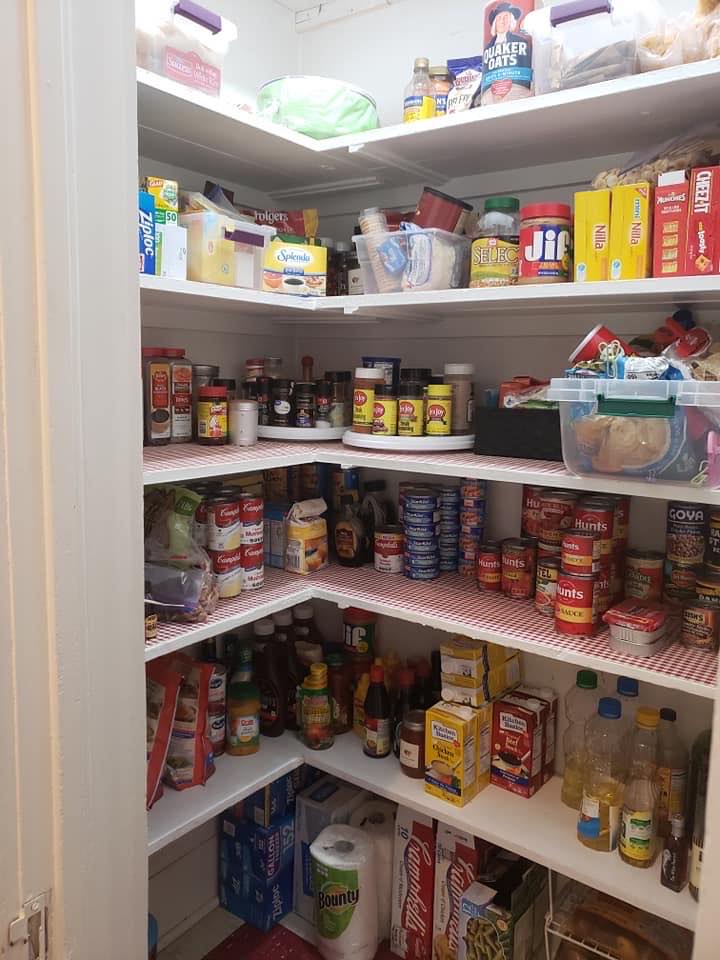Is Your Food Pantry Stocked in Case of Emergency
TEXARKANA, Ark. –
Would you be prepared if you were not able to go to the store? Maybe you became ill and were quarantined, there was a natural disaster, or any number of reasons you were not able to go to the store. If you have a pantry stocked with nonperishable foods, you are well on your way to being able to feed yourself and your family.
Why do we need a well-stocked food pantry? There may be no access to food, water, heat and power. A storm can confine your family at home. A quarantine may make it difficult to replenish food supplies due to not being able to get out of your house.
Since food and water truly are necessary for life, planning for them in the face of pending disasters makes sense. Most sources recommend a three day to three-week supply of non-perishable food and water for each member of your family.
In a disaster situation, it’s best to use bottled water if possible. Have at least three days’ supply of water and store at least one gallon of water per person per day. For a family of four that’s twelve gallons.
Purchase commercially bottled water, keep in its original container and observe the “use by” date. If you prepare your own containers of water, use food grade water storage containers from camping supply stores. Clean before filling with water. You may also choose two-liter plastic soft drink bottles but not plastic jugs or cardboard containers that have had milk or fruit juice in them. Milk protein and fruit sugars cannot be removed adequately and provide an environment for bacterial growth when water is stored in them.
Thoroughly clean the soft drink bottles with dishwashing soap and water; rinse completely so there is no residual soap. Sanitize the bottles by adding a solution of 1 teaspoon non-scented liquid household chlorine bleach into a quart of water. Swish the sanitizing solution in the bottle so that it touches all surfaces, including the lid. After sanitizing the bottle, thoroughly rinse out the sanitizing solution with clean water.
Fill the bottle to the top with regular tap water that has been commercially treated from a water utility with chlorine. Nothing else is needed to keep it clean. Replace water prepared by yourself every six months.
Plan menus to include as much variety as possible; three weeks’ worth of Vienna sausage, sardines, saltine crackers and beans isn’t variety. Make sure you have enough calories to enable you to do any necessary work.
It is a good idea to select foods that require no refrigeration, preparation, or cooking, and little or no water when preparing your pantry for a natural disaster. If you must heat food, pack a can of Sterno or keep a camp stove with fuel handy.
Select food items that are compact and lightweight. Choose salt-free crackers, whole grain cereals, and canned foods with high liquid content. Avoid foods that will make you thirsty.
Make a list that contains as many of your family’s favorite foods as possible. Include high energy foods such as peanut butter, jelly, crackers, granola bars and trail mix. Don’t forget the staples, sugar, salt, pepper. Special treats, like candy and cookies should be included as morale boosters and for quick energy.
Remember to plan foods for infants, the elderly, or those with special dietary needs. Keep an adequate supply of prescription medications and a first aid kit. Don’t forget your pets. Plan a pet survival kit with food and water too.
One last thing, don’t forget to include a manual can opener in your food pantry! You may not have electricity to operate an electric can opener.
Preparing your food pantry for an emergency is something you hope you don’t have to use, but if it happens you will be glad you did. It could be from a quarantine due to illness, fire, flood, thunderstorm, tornado or any other natural disasters.
Be prepared by getting your free copy of One Week Meal Planner, based on MyPlate, and the accompanying shopping list, contact the Miller County Extension Office, 870-779-3609 or visit us in room 215 at the Miller County Courthouse. We're online at cdue@uada.edu, on Facebook at UAEXMillerCountyFCS, on Twitter @MillerCountyFCS or on the web at uaex.uada.edu/Miller.
By Carla Due
County Extension Agent - FCS
The Cooperative Extension Service
U of A System Division of Agriculture
Media Contact: Carla Due
County Extension Agent - FCS
U of A Division of Agriculture
Cooperative Extension Service
400 Laurel Street, Suite 215 Texarkana AR 71854
(870) 779-3609
cdue@uada.edu
The Arkansas Cooperative Extension Service is an equal opportunity institution. If
you require a reasonable accommodation to participate or need materials in another
format, please contact your County Extension office (or other appropriate office)
as soon as possible. Dial 711 for Arkansas Relay.
Pursuant to 7 CFR § 15.3, the University of Arkansas System Division of Agriculture
offers all its Extension and Research programs and services (including employment)
without regard to race, color, sex, national origin, religion, age, disability, marital
or veteran status, genetic information, sexual preference, pregnancy or any other
legally protected status, and is an equal opportunity institution.
